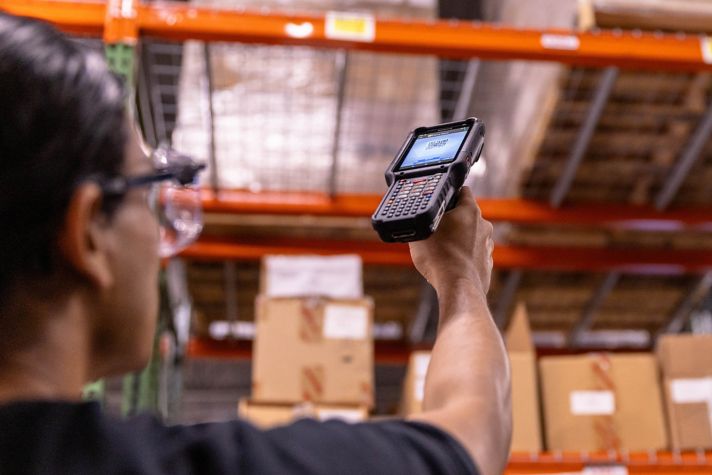-
Global
-
Africa
-
Asia Pacific
-
Europe
-
Latin America
-
Middle East
-
North America
- |
- BUSINESSES
- |
- Contact
- |
-
Global
-
Africa
-
Asia Pacific
-
Europe
-
Latin America
-
Middle East
-
North America
- |
- BUSINESSES
- |
- Contact
- |
You are browsing the product catalog for
You are viewing the overview and resources for
- News
- 5 Retail Trends Changing the Way You Shop in 2025
5 Retail Trends Changing the Way You Shop in 2025
Consumers should expect more seamless checkouts and more personalized online shopping
Whether filling your virtual grocery cart from the comfort of your couch or using augmented reality to visualize a new furniture purchase in your space, shopping today is all about convenience and speed.
Retailers are working around the clock to keep up with consumers’ growing expectations. Expect to see AI agents, more experiential shopping experiences and seamless customer service.
We're sharing new insights from our AI in Retail survey – a poll of retailers and holiday shoppers in the U.S. on their use of AI – and perspectives from one of our retail experts, Andres Avila, global marketing lead for Honeywell Productivity Services and Solutions. Keep reading to get the scoop on some of the trends impacting retailers this year and what shoppers should look forward to in the future.
Retailers are reinvesting in their workers
The retail labor landscape is evolving. Even in the self-checkout era, Avila said that many retailers are reinvesting in their associates – including hiring more employees to support customer experience and help with security in stores.
“The difference now compared to two or three years ago is that many retailers expect workers to have more than one responsibility and be able to make decisions. They want all employees to help solve customer pain points,” Avila said.
To enhance employee experience, many retailers are using AI tools to equip associates with real-time information to help them answer customers’ questions, such as about product inventory.
More than 6 in 10 retail executives surveyed in Honeywell’s AI in Retail Survey said that AI tools make the job easier for employees, and 55% said they increase job satisfaction. More than half of respondents believe AI can help employees progress more quickly in their careers, expand their soft skills and continuously provide value to their jobs.
Consumers expect “phygital” shopping experiences
The line between online and brick-and-mortar shopping is continuing to blur. Consumers expect quick responses and the ability to compare products online while shopping in-store.
“Consumers want a blend of the physical and digital retail experiences where they can enjoy the best of both,” Avila said. “[Shoppers] do not want to have a completely different experience online and offline.”
Experiential retail is on the rise
Successful retailers are going beyond the transaction – a purchase or a return – to make a lasting impression on customers and build community. Expect to see more experiences like pop-ups, exhibits and immersive shopping experiences that focus on “phygital” retail growing in prominence.
“Consumers demand experiences and sometimes advice when visiting stores, making customer connections crucial,” Avila said.
Supply chain resiliency and improved logistics
Retailers are focused on supply chain resiliency -- including automation, real-time tracking and strategies for overcoming global supply chain challenges, Avila said.
For consumers, this could help with the speed of deliveries and even more accurate product inventory.
Expect to see AI used for more efficient day-to-day operations
Retailers are also using AI tools to streamline everyday operations, with new solutions having the potential to improve how employees assist customers. Honeywell’s AI in Retail Study found that over the next 12 months, 36% of retailers are investing in AI to improve returns management, 35% are focused on AI for automating customer service and 32% are using AI to enhance monitoring of product availability.
With increasing use of AI capabilities and technologies, Avila said retailers are more focused on obtaining high-quality data about their inventory and products to ensure accurate AI applications.
“The conversation in the retail industry has shifted from simply the need to capture data to the importance of using it more effectively for decision-making,” Avila said.
Read the full press release for more insights from the AI Retail Study and discover how these technologies are shaping the future of retail.
Copyright © 2025 Honeywell International Inc.



